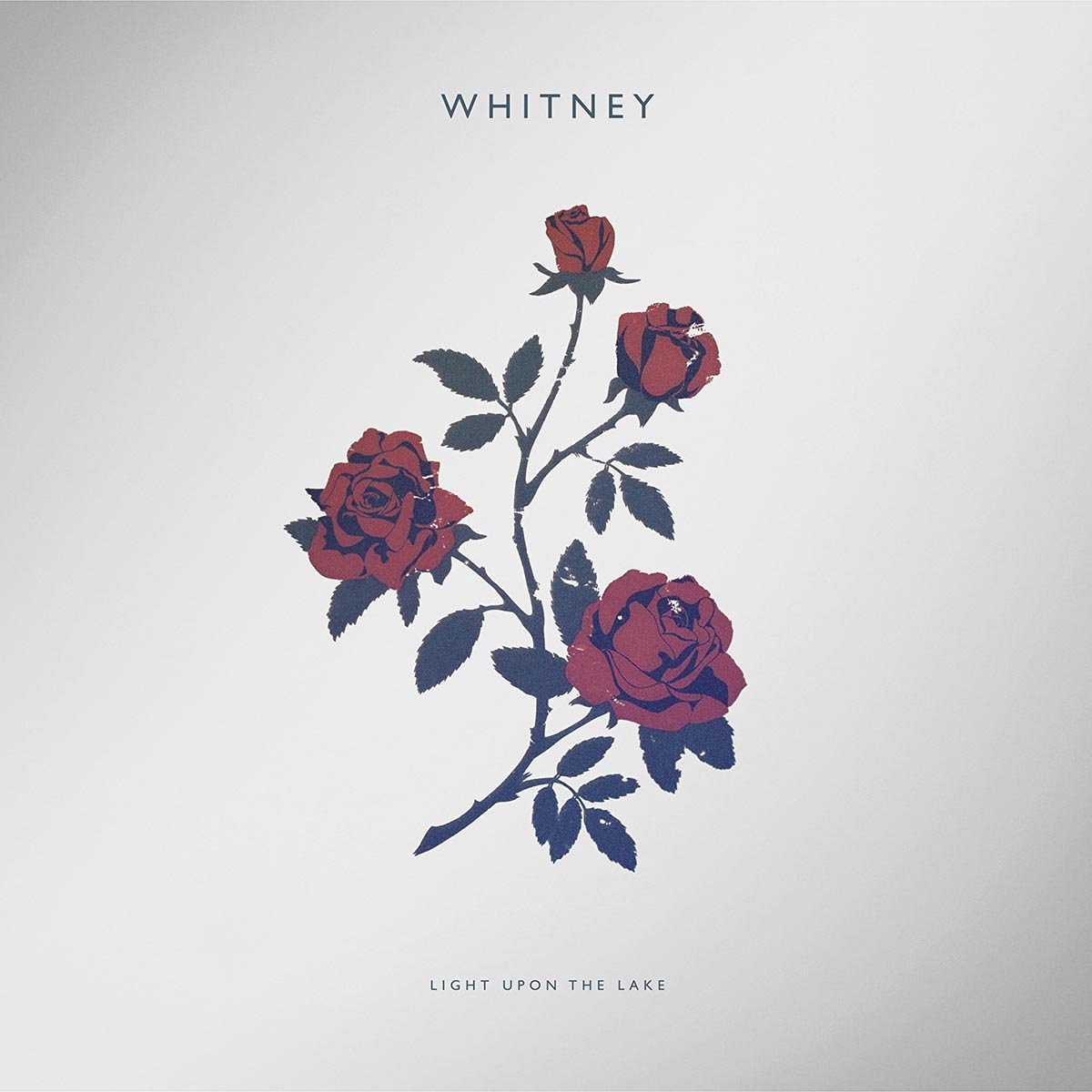Whitney Light Upon The Lake

The word ‘supergroup’ is a bit of an oxymoron. I mean, Cream were decent but from Slash’s Snakepit to Audioslave it’s a term that conjures up music’s less, let’s say, tasteful moments. Indeed, much as I love ‘The Living Years,’ even I will admit that Mike + The Mechanics’ oeuvre is patchy at best.
Now, however, we have Whitney. A more understated take on the model, they have quietly produced one of the year’s best albums so far. Boasting an embarrassment of indie riches in Julien Ehrlich (an alumnus of both Unknown Mortal Orchestra and Smith Westerns), Max Kakacek (another former Smith Westerner), Ziyad Asrar (Touching Voids), and a sprinkling of production fairy dust from the hands of Jonathan Rado (Foxygen) and Jacob Portrait (UMO), their collective CV is impressive. Like an Arsenal team sheet flapping in the August breeze, they look good on paper. Whitney, however, are more than the sum of their parts.
Taking the folk and country-dappled rock of the likes of Jim Ford and Gram Parsons as their foundations, they have already been labelled as throwbacks. But while ‘Light Upon The Lake’ clearly hankers for another sonic era, this group of twenty-somethings aren’t just nostalgic for the warmth of a bygone sound. No, they have also made it their mission to reprise a wholesomeness of sentiment; a purity of feeling that has long since expired in pop music. The magic is that they manage to do so with earnestness. Their songs never veer into pastiche or stylistic self-consciousness, and never feel like they are constructed merely for the vague purpose of post-irony. And, in any case, who said the past should be allowed to co-opt a sound or an ethos? Contemporary classical composers don’t get slagged because their sound is retro.
A breakup album, its songs are wistful, melancholic sketches of those zoomed-in flashes of relationships that seem somehow to capture the whole; crumpled photo booth prints taken on a scorching summer’s day found at the bottom of a shoebox a couple of Christmases later. ‘Golden Days’, the album’s most immediate hit, for example, is a gorgeous, early Jackson Browne-esque ode to the happier times shared between two humans, written with the magnanimity that only the twin luxuries of time and distance can afford. With a tender George Harrison guitar line that bends and keens, and a rousing coda of trumpets and sing-along ‘na-na-na’ vocals, it’s a brilliantly sunny celebration of the past that strides confidently into the future, whatever it may be.
‘Polly’, meanwhile, is another standout; an affectionate meditation on those quiet moments when you’re visited by the ghost of an old love, just as you thought you were doing alright. Climaxing with a wall of brass, it again manages to be triumphant while casting one fond eye over its shoulder, observing what has been and is no longer. Elsewhere, the title track is a resplendent update on Crosby, Stills, & Nash (another decent supergroup, in fairness), while ‘Dave’s Song’ is a wonderfully bare country number that asks its subject for forgiveness amid wailing guitars and plaintive horns. But I could list every track and rhyme off a whole catalogue of touchstones so let me keep this simple: ‘Light Upon The Lake’ is a beautiful thing. Its melodies are beautiful and its honesty of emotion is beautiful. Make it a part of your life.